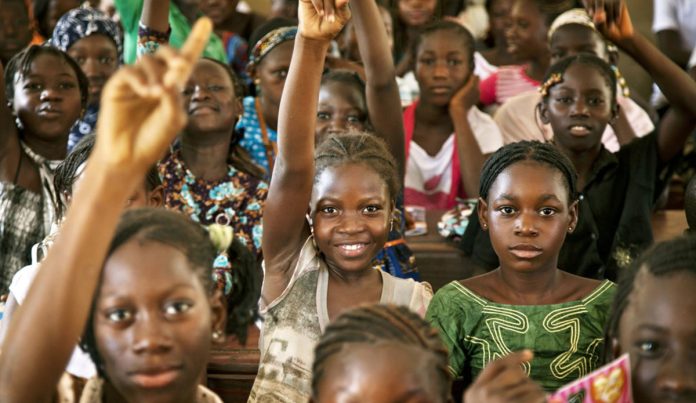Universal Children’s Day: Ghana and the rest of the world asked to support child rights
“And I reiterate UNICEF’s call for the immediate and safe release of any children being held hostage in Gaza so that they can be reunited with their families.”
A child, according to the United Nations Convention on the Rights of a Child, is any person below the age of 18 years and same is indicated in the constitution of many countries.
Children just as adults have their rights that need to be respected in every country and Ghana is no exception.
Such rights in Ghana according to the Children’s Act, 1998, are the rights to name and nationality, grow up with parents, life, dignity, respect, leisure, liberty, health, education, and shelter from the parents, protection from all inhuman treatments and rights to parental properties and to refuse betrothal marriage among others.
Children’s rights are sometimes overlooked in different forms in some countries, including Ghana.
Such common rights are education, health, food, clothing and shelter, freedom from abuse and forced marriages among others.
Narrowing it to Ghana, although basic education is free to children, some are seen selling in heavy traffics, begging for alms in traffic, going to farm with their parents, or engaging in other hazardous activities during school hours.
Others are also trafficked and engaged in child work, including prostitution. A number of them, forced into early marriages.
It is for these reasons that the United Nations General Assembly on November 20, 1959, adopted the Declaration on the Rights of a Child and in 1989 adopted the Convention on the Rights of the Child.
However, World Children’s Day was established in 1954 as Universal Children’s Day and celebrated on November 20 of each year to promote international togetherness, awareness among children worldwide and improving children’s welfare.
It is also to enlighten countries globally on the Rights of a Child and the need for them to be respected.
The 2023 celebration is on the theme: “For Every Child, Every Right” and UNICEF calls on mothers and fathers, teachers, nurses and doctors, government leaders and civil society activists, religious and community elders, corporate moguls and media professionals, as well as young people and children themselves, to play important roles in making World Children’s Day relevant for their societies, communities and nations.
“World Children’s Day offers each of us an inspirational entry-point to advocate, promote and celebrate children’s rights, translating into dialogues and actions that will build a better world for children,” it states.
UNICEF says the Day is an annual day of action for children, by children.
From climate change, education, and mental health, to ending racism and discrimination, it says children and young people are raising their voices on the issues that matter to their generation and calling for adults to create a better future.
“This World Children’s Day is more important than ever that the world listens to their ideas and demands. On November 20, kids are speaking out and remaining a better future. What will you do?”
Speaking on the Gaza-Israel war, Ms Catherine Russell, UNICEF Executive Director, says the true cost of the violence would be measured in children’s lives – those lost to the violence and those forever changed by it.
In less than three weeks on from the horrific attack inside Israel and the start of daily bombings of the Gaza Strip, she says more than 2,700 Palestinian children are killed and nearly 6,000 injured, with a shocking average of more than 480 child casualties per day, according to Gaza’s Ministry of Health.
More than 30 Israeli children have reportedly been killed, while at least 20 in hostage in the Gaza Strip, with their fates unknown, she says, adding: “Sadly, more suffering and death is on the horizon.”
Ms Russell says water is quickly running out, leaving many Gazans with little choice, but to rely on polluted wells, dramatically increasing the risk of waterborne-disease outbreaks with children being the most vulnerable.
“War not only kills people; it kills possibility, slamming the door shut on what might have been. Children who have lost their lives will not grow up to be the people their communities needed them to become.
“Children who survive could see their lives irrevocably altered through repeated exposure to traumatic events. Violence and upheaval can induce toxic stress, which can interfere with physical and cognitive development and cause mental-health problems in both the short and long term,” she says.
Even before the latest escalation, she says more than 816,000 children in Gaza—three-quarters of its entire child population are identified as needing mental-health and psychosocial support.
Ms Russell says every right of a child has been trampled upon and implores adults who perpetrate violence to agree to a humanitarian cease-fire, and to ensure immediate, unrestricted, and sustained humanitarian access throughout Gaza.
She says that would allow humanitarian actors to safely reach civilians in need, save lives, and prevent further human suffering.
“And I reiterate UNICEF’s call for the immediate and safe release of any children being held hostage in Gaza so that they can be reunited with their families.”


